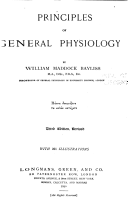Better to Be Wrong Than Impartial
But, as Bacon has well pointed out, truth is more likely to come out of error, if this is clear and definite, than out of confusion, and my experience teaches me that it is better to hold a well-understood and intelligible opinion, even if it should turn out to be wrong, than to be content with a muddle-headed mixture of conflicting views, sometimes miscalled impartiality, and often no better than no opinion at all.
Notes:
Impartiality defined here as holding a collection of conflicting viewpoints, where it is better to hold no opinion at all.
Folksonomies: truth opinion impartiality
Taxonomies:
/law, govt and politics/government/courts and judiciary (0.563740)
/law, govt and politics (0.384052)
Keywords:
Impartial Impartiality (0.915595 (negative:-0.404174)), conflicting viewpoints (0.847789 (negative:-0.404174)), intelligible opinion (0.761256 (positive:0.232447)), conflicting views (0.710672 (negative:-0.439487)), muddle-headed mixture (0.661922 (negative:-0.439487)), confusion (0.272173 (negative:-0.255473)), Bacon (0.268623 (positive:0.351618)), error (0.261537 (negative:-0.267047)), truth (0.249170 (negative:-0.267047)), collection (0.240223 (negative:-0.404174))
Entities:
Bacon:Person (0.883398 (positive:0.292033))
Concepts:
Holding (0.911360): dbpedia | opencyc
Coming out (0.886784): dbpedia | freebase | yago
Hold (0.870400): dbpedia





